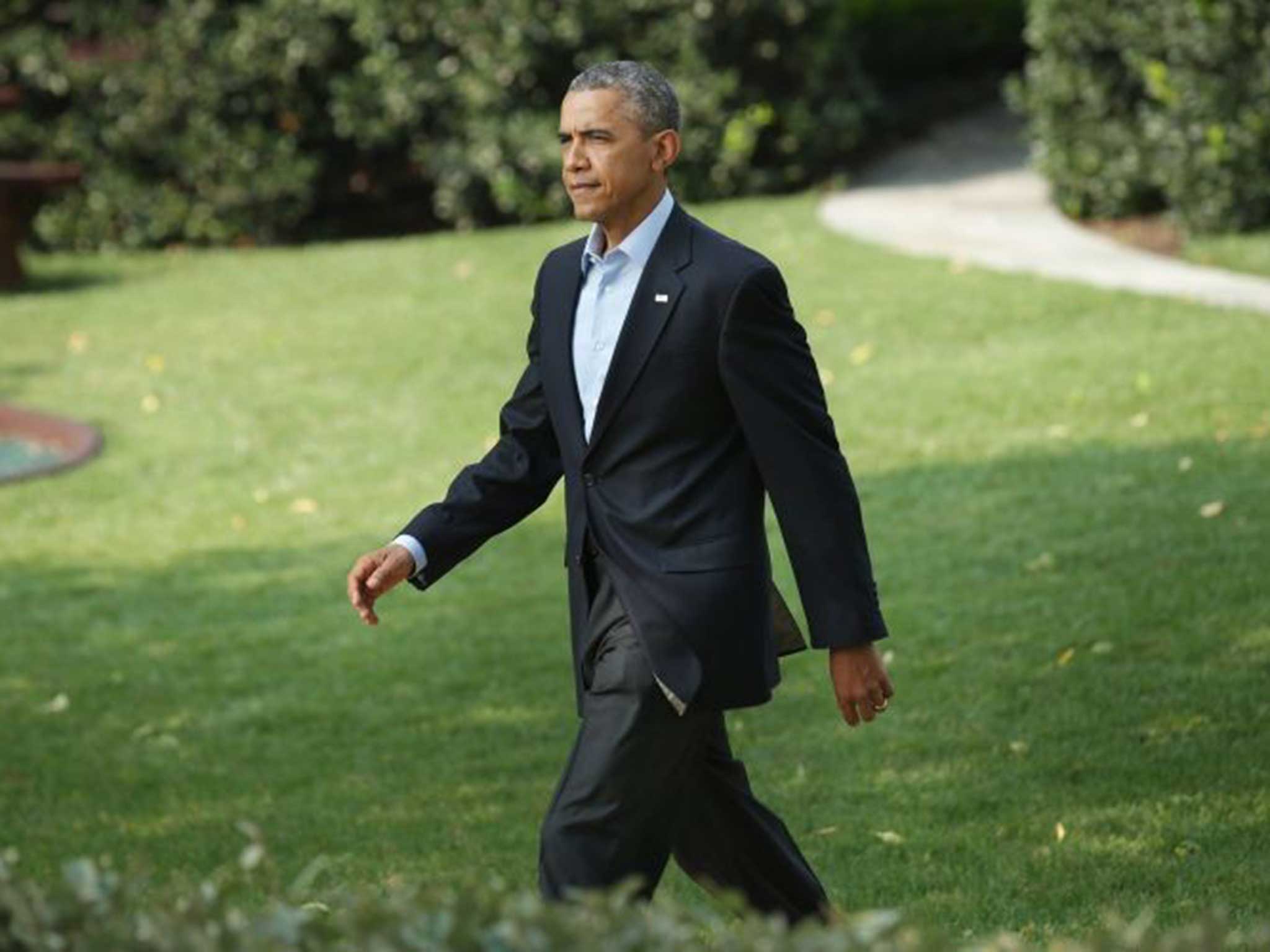Iraq crisis: American intervention against Isis boosts Kurdish morale as President Obama launches more air strikes
Soldiers say they have opened a road for thousands of stranded Yazidis as airdrops reach refugees

Your support helps us to tell the story
From reproductive rights to climate change to Big Tech, The Independent is on the ground when the story is developing. Whether it's investigating the financials of Elon Musk's pro-Trump PAC or producing our latest documentary, 'The A Word', which shines a light on the American women fighting for reproductive rights, we know how important it is to parse out the facts from the messaging.
At such a critical moment in US history, we need reporters on the ground. Your donation allows us to keep sending journalists to speak to both sides of the story.
The Independent is trusted by Americans across the entire political spectrum. And unlike many other quality news outlets, we choose not to lock Americans out of our reporting and analysis with paywalls. We believe quality journalism should be available to everyone, paid for by those who can afford it.
Your support makes all the difference.US air strikes are boosting Kurdish morale as they hit Isis fighters, and Kurdish forces say they have opened a road for thousands of Yazidis cut off in the mountains. US military cargo planes have dropped supplies, though not enough to prevent deaths from starvation.
President Barack Obama said yesterday that the air strikes had destroyed arms and equipment that Isis could have used to attack Erbil, the Kurdish capital, but he warned that the current operation in Iraq could take some time. "I don't think we're going to solve this problem in weeks," he said. He stressed repeatedly the importance of Iraq forming its own inclusive government in which power is shared between all communities.
US air and drone attacks so far have been limited in scope, hitting an Isis convoy of seven vehicles, a mortar position and a mobile artillery piece. Nevertheless, US intervention has helped to curb panic in Erbil with some of those who fled returning to their homes.
President Obama is emphasising that the US does not want to be drawn back into a wider war in Iraq and will not send ground troops, but the US will evidently not allow Isis to capture Erbil or Baghdad. He described US's vigilance against Isis that could "launch attacks" outside Iraq and a "counter-terrorism element" to the ongoing operation. Iraqi Foreign Minister Hoshyar Zebari told a press conference in Erbil that "air strikes are intended to degrade the terrorists' capabilities and achieve strategic gains – and have been very effective".
"I can confirm that we have succeeded in reaching the mountain and opening a road for the refugees," said a Kurdish military spokesman. The plight of the Yazidis, a sect persecuted by Isis as "polytheists", the kidnapping of hundreds of Yazidi women, and the flight of the Christians have given a humanitarian justification for President Obama's authorisation of military action which might otherwise be unpopular in the US.
US planes conducted a second airdrop of food and water yesterday for those trapped in the Sinjar mountains. Escorted by two Navy fighter jets, three planes dropped 72 bundles of supplies for the refugees.
"The morale of the Kurds is recovering as the US intervenes," said Kamran Karadaghi, a Kurdish journalist and former chief of staff to Iraqi President Jalal Talabani. Under the impact of the Isis assault, military co-operation has resumed between the Iraqi government in Baghdad and the Kurdistan Regional Government (KRG). Mr Karadaghi says that Kurdish leaders were surprised by the Isis assault west and east of Mosul. He added that while the Peshmerga (Kurdish soldiers) have a high reputation, "they have nor fought anybody for 20 years". Other sources say that 150 Peshmerga were killed and 550 were wounded.
In 2003, US air power was used effectively in support of the Peshmerga and against Saddam Hussein's army. There are about three dozen US military trainers in Erbil, but it is unclear if Washington would permit anything like the same degree of US-Kurdish co-operation.
Nobody doubts that Isis will be very tough opponents. Their religious fanaticism has been reinforced by their astonishing territorial gains over the past two months, which they attribute to divine intervention. They have taken a quarter of Iraq and a third of Syria and have captured quantities of American and Russian equipment. The Peshmerga claim that they are militarily underequipped, though this excuse for their retreat may be overstated.
Isis victories have come because of its mixture of total religious commitment with a high level of military expertise. The latter is often attributed to guidance from ex-officers in Saddam's army, but the experience of Isis veterans fighting the Americans between 2003 and 2008 and the Syrian army between 2011 and 2014 may be more significant. Mr Karadaghi says that Kurdish commanders have been struck by how, when one Isis battle group is wiped out in the fighting, the attack will be immediately renewed with the same ferocity by another Isis detachment.
Iraq is becoming a land of refugees like Syria, the UN saying that more than 500,000 people have been displaced by the violence since June, bringing the total this year to well over one million. Many who fled in the first six months came from Anbar province where Sunni were escaping the fighting.
One casualty of the fighting may be Kurdish oil boom, with oil companies repatriating employees. Over the past three or four years, Erbil has become a boom town with newly built luxury hotels filled with visiting businessmen. However corrupt and bureaucratic the Kurdish administration, it was still better than that in Baghdad. This bubble of optimism is unlikely to be undamaged as Kurdistan is not immune from the turmoil in the rest of Iraq. In effect, all Iraq is a battle zone.
Join our commenting forum
Join thought-provoking conversations, follow other Independent readers and see their replies
Comments